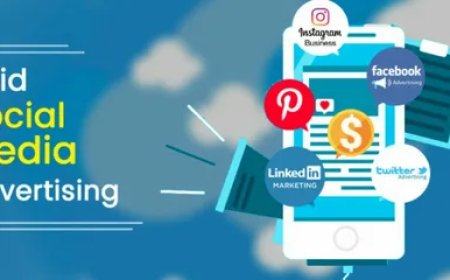Small Business, Big Responsibility: GDPR Certification for SMEs in 2025

If you're a small or medium-sized business (SME), you might think GDPR certification is only for tech giants and global enterprises. But in 2025, that assumption couldn’t be further from the truth.
Data privacy is no longer a luxury or a secondary concern—it’s a fundamental responsibility, even for small companies. GDPR certification offers SMEs a clear path to not only comply with regulations but also build trust and unlock growth.
Why SMEs Can’t Ignore GDPR
Here’s what’s changed in 2025:
-
Enforcement has expanded: Regulators are auditing SMEs, not just Big Tech
-
Supply chains demand compliance: Larger clients require their vendors to be privacy-compliant
-
Customer awareness is rising: Users expect even the smallest platforms to respect their data
-
Cyber threats are growing: SMEs are increasingly targeted for data breaches
That’s why more SMEs than ever are pursuing GDPR certification—not out of fear, but opportunity.
Benefits of GDPR Certification for Small Businesses
-
Build Trust with Customers
Certification tells users: "We take your data seriously." That’s a compelling message in today's market. -
Win Bigger Contracts
Many large corporations and government agencies require vendors to demonstrate GDPR compliance. Certification gives you an edge in procurement processes. -
Improve Data Management
Certification requires better documentation, security practices, and data flow mapping. These improvements often lead to operational efficiencies. -
Reduce Risk
SMEs are particularly vulnerable to fines and breaches. Certification minimizes this risk by enforcing proactive data governance.
How to Approach Certification as an SME
You don’t need a massive legal team to get certified. Here's a simplified process tailored to small businesses:
✅ Start with a Data Inventory
Use a simple spreadsheet or compliance tool to list:
-
What data you collect
-
How you collect it
-
Where it’s stored
-
Who can access it
✅ Create Basic Policies
You need three core policies:
-
Privacy Policy: Published on your website
-
Internal Data Handling Policy: For your team
-
Data Breach Response Plan: What to do in case of a breach
✅ Train Your Team
Even if you have a team of 5–10 people, everyone must understand:
-
What personal data is
-
How to handle it securely
-
When and how to respond to user requests
Use simple online training platforms designed for small teams.
✅ Choose an SME-Friendly Certification Body
Look for certification schemes or auditors that cater to SMEs. Many offer tiered packages, checklists, and templates to help you get started.
✅ Conduct the Audit
The certification audit will assess your:
-
Data collection practices
-
Security and access control
-
Vendor management
-
Documentation and staff awareness
Don’t stress—auditors for SMEs are usually more collaborative than punitive.
Common Misconceptions
-
“We don’t sell data, so we’re safe.” Even collecting email addresses for a newsletter counts as data processing under GDPR.
-
“We’re not in the EU.” If you serve EU residents (even via a website), GDPR applies.
-
“Certification is too expensive.” For SMEs, many certification bodies offer programs for under €10,000.
GDPR Tools for SMEs
Some affordable tools for privacy compliance include:
-
Termly: Easy-to-use privacy policy generators
-
Iubenda: Automates cookie banners and policies
-
Osano: Tracks and manages user consent
-
OneTrust Free Tools: Great for startups and small businesses
A Growing Trend
According to the European Data Protection Board, GDPR certification adoption among SMEs grew by 48% in 2024 alone. Why? Because the digital economy is built on trust—and certification is the fastest way to earn it.
How to Approach Certification as an SME
You don’t need a massive legal team to get certified. Here's a simplified process tailored to small businesses:
✅ Start with a Data Inventory
Use a simple spreadsheet or compliance tool to list:
-
What data you collect
-
How you collect it
-
Where it’s stored
-
Who can access it
✅ Create Basic Policies
You need three core policies:
-
Privacy Policy: Published on your website
-
Internal Data Handling Policy: For your team
-
Data Breach Response Plan: What to do in case of a breach
✅ Train Your Team
Even if you have a team of 5–10 people, everyone must understand:
-
What personal data is
-
How to handle it securely
-
When and how to respond to user requests
Use simple online training platforms designed for small teams.
✅ Choose an SME-Friendly Certification Body
Look for certification schemes or auditors that cater to SMEs. Many offer tiered packages, checklists, and templates to help you get started.
✅ Conduct the Audit
The certification audit will assess your:
-
Data collection practices
-
Security and access control
-
Vendor management
-
Documentation and staff awareness
Don’t stress—auditors for SMEs are usually more collaborative than punitive.
Common Misconceptions
-
“We don’t sell data, so we’re safe.” Even collecting email addresses for a newsletter counts as data processing under GDPR.
-
“We’re not in the EU.” If you serve EU residents (even via a website), GDPR applies.
-
“Certification is too expensive.” For SMEs, many certification bodies offer programs for under €10,000.
GDPR Tools for SMEs
Some affordable tools for privacy compliance include:
-
Termly: Easy-to-use privacy policy generators
-
Iubenda: Automates cookie banners and policies
-
Osano: Tracks and manages user consent
-
OneTrust Free Tools: Great for startups and small businesses
A Growing Trend
According to the European Data Protection Board, GDPR certification adoption among SMEs grew by 48% in 2024 alone. Why? Because the digital economy is built on trust—and certification is the fastest way to earn it.
Conclusion
You don’t need to be big to be responsible. In fact, being small and certified is a competitive advantage. GDPR certification in 2025 helps SMEs look professional, operate securely, and grow confidently.
Privacy isn’t just for the big players. It’s for everyone—especially those who want to thrive.
What's Your Reaction?
























































